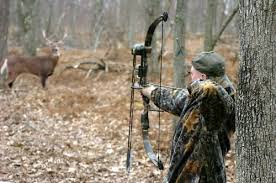hunt
英 [hʌnt]
美 [hʌnt]
- vt. 打猎;搜索
- vi. 打猎;搜寻
- n. 狩猎;搜寻
- n. (Hunt)人名;(德、瑞典)洪特;(英)亨特;(法)安
使用频率:

记忆方法
将“hunt”与“hun”结合记忆,想象一只“hun”(野人)在狩猎的场景,形象地联想到猎取动作。这种方法通过形象化的联想来帮助记忆单词的含义。
以上内容由AI生成, 仅供参考和借鉴
中文词源
hunt 打猎,追踪
来自古英语huntian,打猎,猎捕,来自Proto-Germanic*huntona,猎捕,捕获,来自PIE*kend,抓住,抓捕,词源同hint.
英语词源
- hunt
-
hunt: [OE] Hunt is an ancient word, probably traceable back to an Indo-European *kend-, which also produced Swedish hinna ‘reach’. Its original Old English descendant was hentan ‘seize’, of which huntian (source of modern English hunt) was a derivative. Etymologically, therefore, hunt means ‘try to seize’.
=> hand - hunt (v.)
- Old English huntian "chase game," related to hentan "to seize," from Proto-Germanic *huntojan (cognates: Gothic hinþan "to seize, capture," Old High German hunda "booty"), from PIE *kend-.
General sense of "search diligently" (for anything) is first recorded c. 1200. Related: Hunted; hunting. Happy hunting-grounds "Native American afterlife paradise" is from "Last of the Mohicans" (1826). - hunt (n.)
- early 12c., from hunt (v.). Meaning "body of persons associated for the purpose of hunting with a pack of hounds" is first recorded 1570s.
权威例句
- 1. The couple had helped in the hunt for the toddlers.
- 这对夫妇曾帮着搜寻那些幼童。
- 2. Parent birds began to hunt for food for their young.
- 亲鸟开始为幼鸟寻找食物。
- 3. He set off for a nineteen-day moose hunt in Nova Scotia.
- 他动身前往新斯科舍参加为时19天的驼鹿捕猎活动。
- 4. Steve Vickers was yellow-carded for a foul on Hunt.
- 史蒂夫·维克斯因对亨特犯规被出示黄牌。
- 5. A leopard hunts alone, and an injured leopard cannot hunt.
- 豹向来单独猎食,所以如果受伤了就无法捕猎。
